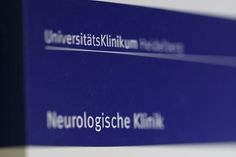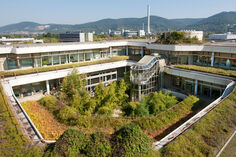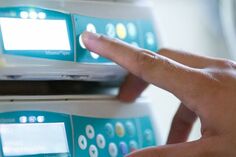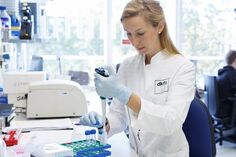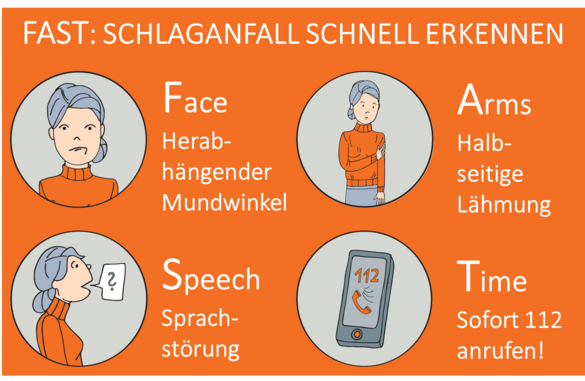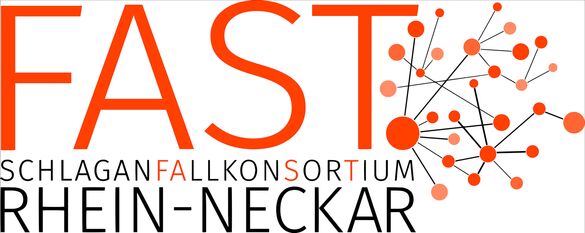Stroke care
Call 112 in the event of a stroke!
Stroke patients
ARE EMERGENCY PATIENTS
This principle has applied in Heidelberg for many years and is the basis of developments in recent years that have improved the care of stroke patients in Heidelberg.
The only causative drug-based stroke therapy is so-called thrombolytic therapy, which involves the administration of a clot-dissolving drug. In recent years, endovascular neuroradiological interventions that can be used to mechanically remove clots blocking blood vessels ( thrombectomy) have proven to be particularly effective. However, both procedures are only safe and effective in the first few hours after the onset of symptoms.
It is therefore imperative to act quickly!
In exceptional cases, this therapy is still possible as part of individual treatment attempts, even if the time window is unclear or prolonged; however, the effect is significantly less. The Neurological Clinic of the University is the only clinic in Heidelberg and the surrounding area where this therapy is offered around the clock (24/7). Due to the very short therapy window, it is essential to come to the clinic as soon as possible after the onset of symptoms.
If you ever suffer a stroke yourself or notice symptoms that indicate this in a friend or relative, inform the emergency services immediately by dialling 112.
Possible stroke symptoms
- Acute loss of consciousness
- Sudden weakness or numbness of the face, arm or leg (especially in the same side of the body)
- Sudden onset of double vision or loss of vision in one or both eyes
- Speech comprehension or speech disorders
- Sudden loss of balance, gait or coordination
You can easily memorise common stroke symptoms with the acronym "FAST":
(Face-Arm-Speech-Time = In the event of sudden abnormalities, call 112)
Emergency outpatient clinic
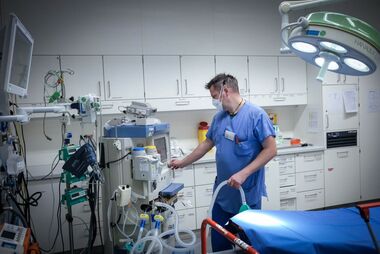
In the clinic, diagnostics must be carried out quickly and purposefully in order to be able to make treatment decisions quickly and safely. The centrepiece of acute care for stroke patients at the Neurological Clinic of the University is the emergency outpatient clinic of the Head Clinic.
Our emergency outpatient department is staffed around the clock by at least one doctor experienced in acute stroke care, who is supported by a nursing team with many years of experience in the treatment of emergency patients. Comprehensive and continuous intensive medical monitoring is possible here (ECG, oxygen saturation, blood pressure, ventilation if necessary).
The close proximity to the Department of Neuroradiology ensures round-the-clock availability of all modern diagnostic and interventional therapy procedures (computer tomography, magnetic resonance imaging, angiography).
After the acute diagnosis and treatment, a decision is made in the emergency outpatient department about the place of further treatment. Most of the stroke patients examined in the emergency outpatient department receive further inpatient treatment at our clinic. Some patients are transferred to neighbouring hospitals, some of which we have been working closely with for years. And some patients can also be discharged directly home after the necessary diagnostics have been completed and receive further treatment from colleagues in private practice.
Inpatient treatment (stroke unit)
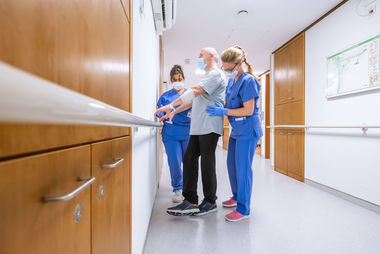
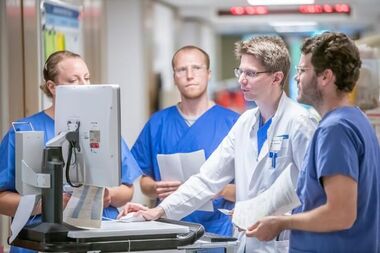
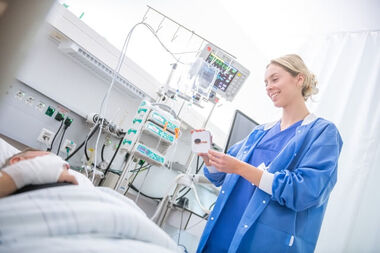
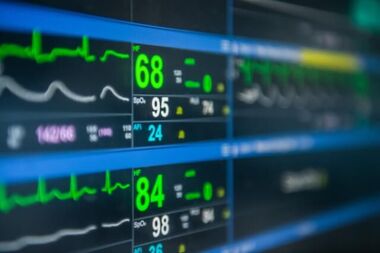
General information (visiting times, contact details): Stroke Unit (Neurology Ward 5).
The stroke unit has been in place since 1998 for the inpatient treatment of acute stroke patients. In combination with a monitoring ward (Intermediate Care Unit), 20 beds are available on the ground floor of the head clinic in rooms that were renovated and air-conditioned in 2019.
Stroke units serve to optimise the implementation of an integrated treatment concept for acute stroke patients. A highly specialised treatment team consisting of nursing staff, physiotherapists, speech therapists, occupational therapists, social service staff and doctors ensures state-of-the-art diagnosis and treatment.
It is particularly important that rehabilitation is started directly in the stroke unit. Several physiotherapists, occupational therapists and speech therapists start a rehabilitation programme adapted to the individual severity of the patient on the day of admission if possible.
Treatment in a stroke unit has been proven to reduce mortality and the severity of residual disability; this is independent of age, gender or the severity of the initial disability. We therefore endeavour to treat as many patients as possible on this ward. This currently amounts to over 2200 per year.
For particularly severely ill stroke patients, up to 10 beds are available on our neurological intensive care unit. Patients who require artificial respiration are primarily cared for here. In close co-operation with colleagues from neurosurgery and neuroradiology, patients undergo surgery or interventional treatment if the severity of the illness so requires.
In addition to the in-house stroke unit, medical staff at our clinic also care for the local stroke ward at the GRN Klinik Sinsheim and the stroke ward in Heppenheim.
Follow-up treatment
Acute treatment in hospital is often followed by inpatient or outpatient rehabilitation treatment. To this end, we work closely with numerous rehabilitation clinics.
Even after rehabilitation, patients and often their relatives need help to cope with the stresses and strains of daily life. The various self-help groups that have formed in recent years and are open to all are particularly important here. A co-operation network has been set up via the city of Heidelberg, in which all groups and institutions that deal with stroke patients work together. This network organises annual information events.
To summarise, it can be said that stroke care, from acute emergencies to long-term rehabilitation and reintegration of those affected into social life, is only possible through close cooperation between all those involved. At the Department of Neurology at Heidelberg University Hospital, all the conditions are in place to minimise the consequences of a stroke for the patient together with our cooperation partners.
Medical treatment standards Stroke Unit and information for patients and relatives
The Stroke Unit's treatment standards are regularly updated and, like other information, are available in the download area area. You will also find further information for patients and relatives in leaflets for download.
Links
The following links refer to interesting pages on the subject of "Stroke". No guarantee can be given for the correctness of these links or the contents of the corresponding pages.
